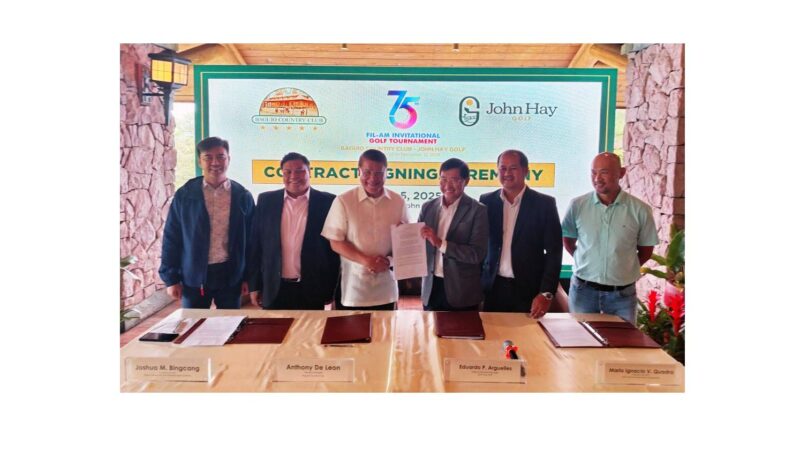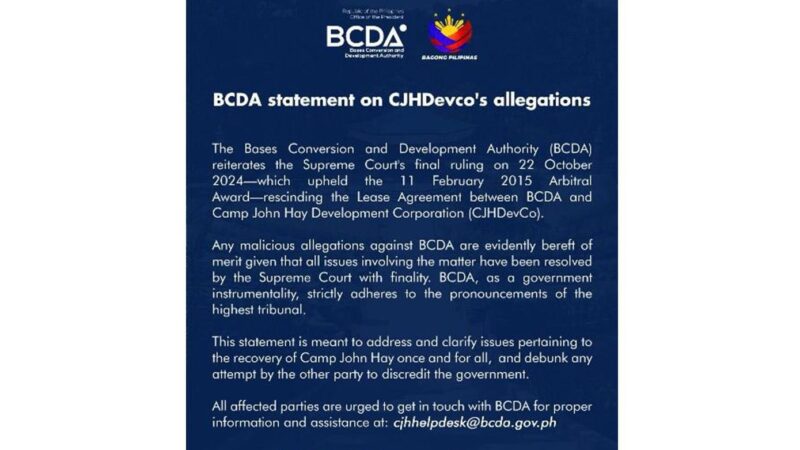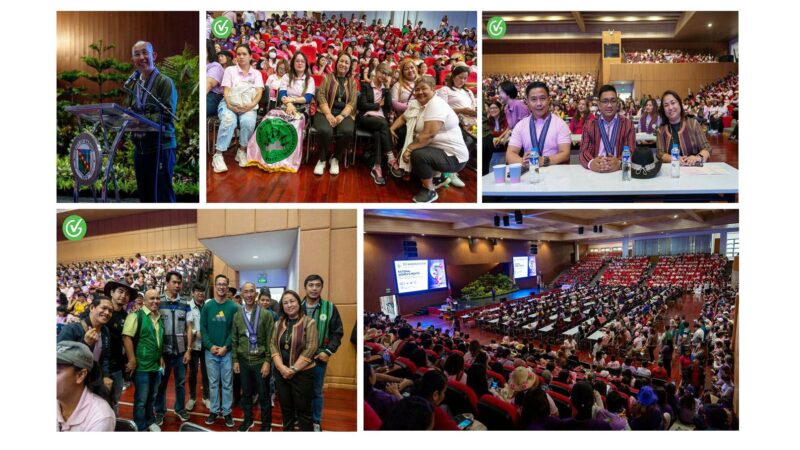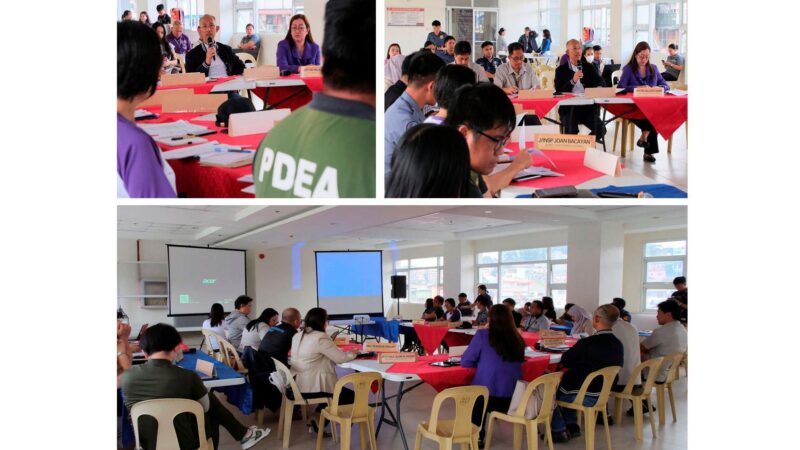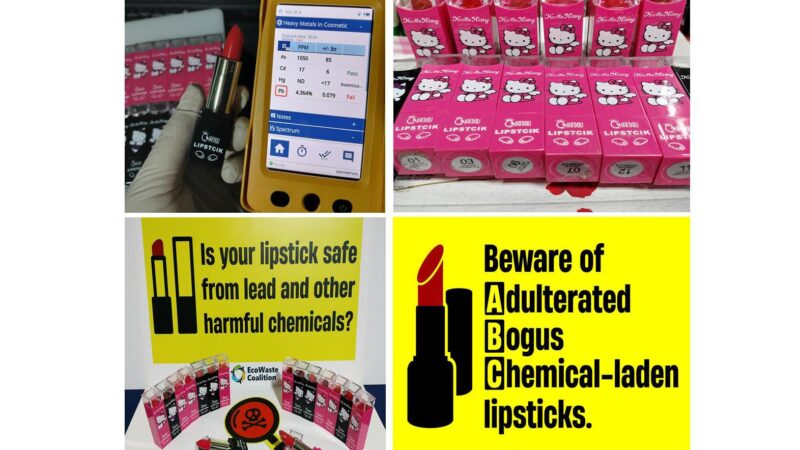Environmental Group Calls on Governments to Take a Stand Against Global Plastic Pollution
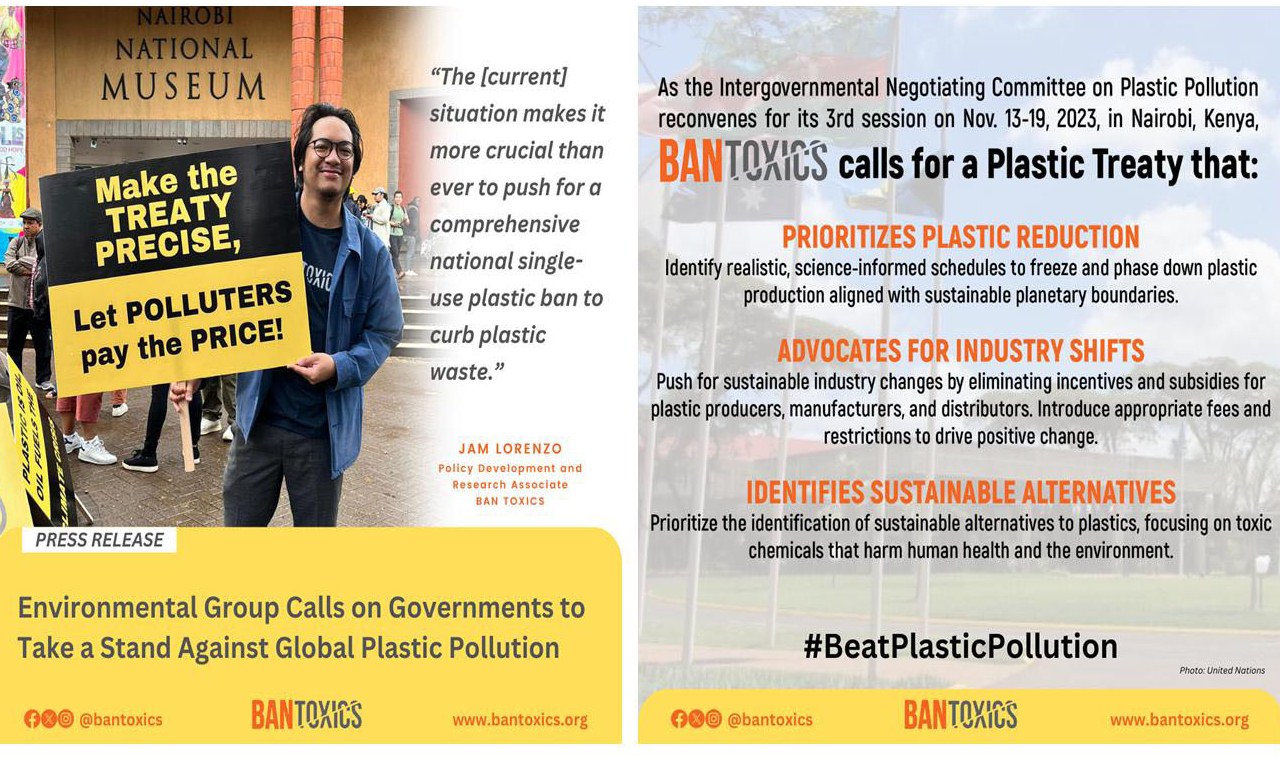
BAN Toxics, along with other green groups and civil society organizations, is actively addressing the urgent need to combat plastic pollution at the Intergovernmental Negotiating Committee (INC-3) for the Global Plastics Treaty. Set for November 13-19, 2023 at the UNEP Headquarters in Nairobi, Kenya, INC-3 aims to develop a comprehensive instrument addressing the full life cycle of plastic, including its production, design, and disposal. Previously, a zero draft document was developed by the Secretariat as an outcome of INC-2 held earlier this year.
Plastic pollution poses a significant challenge in the Philippines, with single-use plastics like sachet packs, bags, cutlery, cups, and PET bottles being major contributors. A 2019 GAIA study[1] revealed that the country has recorded the daily disposal of over 163 million plastic sachet packets, 48 million shopping bags, and 45 million thin-film bags.
Pervasive Plastic Pollution
BAN Toxics is deeply concerned about the environmental challenges caused by single-use plastics and their impact on the general public. According to the United Nations Environment Programme (UNEP),[2] the persistence of plastic is a concerning issue, as most plastic items do not completely vanish; instead, they degrade into increasingly smaller pieces. These microplastics can enter the human body through inhalation and absorption, accumulating in vital organs like the lungs, liver, spleen, and kidneys.
Increased health risks, particularly in communities with inadequate waste management, underscore the need for stronger mechanisms and effective solutions on both national and regional levels.
“The Philippines is at a critical juncture in the battle against plastic pollution. Our country’s unique biodiversity, alongside the health, welfare, and sources of livelihood of our people, deserve protection, and we must act decisively,” says Jam Lorenzo from BAN Toxics’ Policy Development and Research Unit.
BAN Toxics in the Global Policy Landscape
Despite efforts to combat plastic pollution through regulations, enforcement challenges persist in the Philippines. Progress is hindered by implementation gaps, prompting a call for the Philippines to advocate for a legally binding instrument at the international level.
The upcoming plastic treaty could be the inaugural multilateral agreement, featuring legally binding and globally harmonized requirements for transparent information on chemicals and polymers in plastic materials. It aims to ensure traceability of this information throughout the entire lifecycle of plastics, involving all stakeholders in the value chain.[3]
BAN Toxics actively participates in negotiations for a global plastics treaty, a legally binding tool emphasizing the critical need to address plastic production at its core. The group previously presented its positions at technical webinars hosted by the INC Secretariat,[4] and has submitted proposals to UNEP at both international[5] and regional[6] levels prioritizing plastic reduction, advocating for industry shifts, and identifying sustainable alternatives. Indeed, the group advocates for a comprehensive global plastic treaty, with the following key points:
1. Prioritizes the reduction of plastic use and production by establishing realistic and science-informed schedules for freezing and phasing down plastic production, ensuring alignment with sustainable planetary boundaries and the safeguarding of human health and the environment.
2. Encourages sustainable shifts in industry perspectives and practices by eliminating incentives and subsidies for plastic producers, manufacturers, and distributors and imposing appropriate fees and restrictions on industries.
3. Emphasizes the identification of sustainable alternatives to plastics to protect human health and the environment, particularly by addressing plastics or chemicals in plastics that are known carcinogens, endocrine disruptors, and substances that persist, bioaccumulate, and are toxic in the environment.
Gaps and Challenges in the Local Level
Republic Act 9003 (RA 9003), enacted in 2000, is the primary policy addressing solid waste by emphasizing avoidance, reduction, and responsible treatment. It mandates the National Solid Waste Management Commission to prepare and publicize a list of Non-Environmentally Acceptable Products and Packaging (NEAPP) that could have helped regulate plastic waste. After 20 years, the guidelines have yet to be made public.
Meanwhile, the Philippines enacted the “Extended Producer Responsibility” (EPR) law in 2022, raising concerns among green groups[7]. Since last August, BAN Toxics[8] has been urging the government to adopt comprehensive approaches to address plastic waste. The group stresses the need to avoid incentivizing environmentally harmful waste disposal methods under the current EPR model and emphasizes the importance of covering the entire lifecycle of plastics. Further, reducing plastic use is the most effective strategy, and the implementation of EPR should focus on sustainable production, consumption, and zero waste, with a priority on upstream solutions.
Lorenzo further stressed, “Despite these mechanisms, there is a shared recognition that further strides are needed in terms of effective implementation, greater policy action, and stakeholder involvement to achieve results.” The situation makes it more crucial than ever to push for a comprehensive national single-use plastic ban to curb plastic waste. There have also been several bills filed in both the lower[9] and upper houses[10] to cut down on plastic waste.
Future Outlook
The group aims to contribute to discussions at INC-3, positioning the Philippines as a leader in the global fight against plastic pollution, advocating for a Treaty aligned with local sustainability objectives, and safeguarding the country’s unique biodiversity.
The urgent call to action against plastic pollution requires collaborative efforts on a global scale. BAN Toxics continues to engage with fellow green groups, experts, impacted groups, and communities to urge the international community to develop binding instruments and enact change for a sustainable future. (PR)


